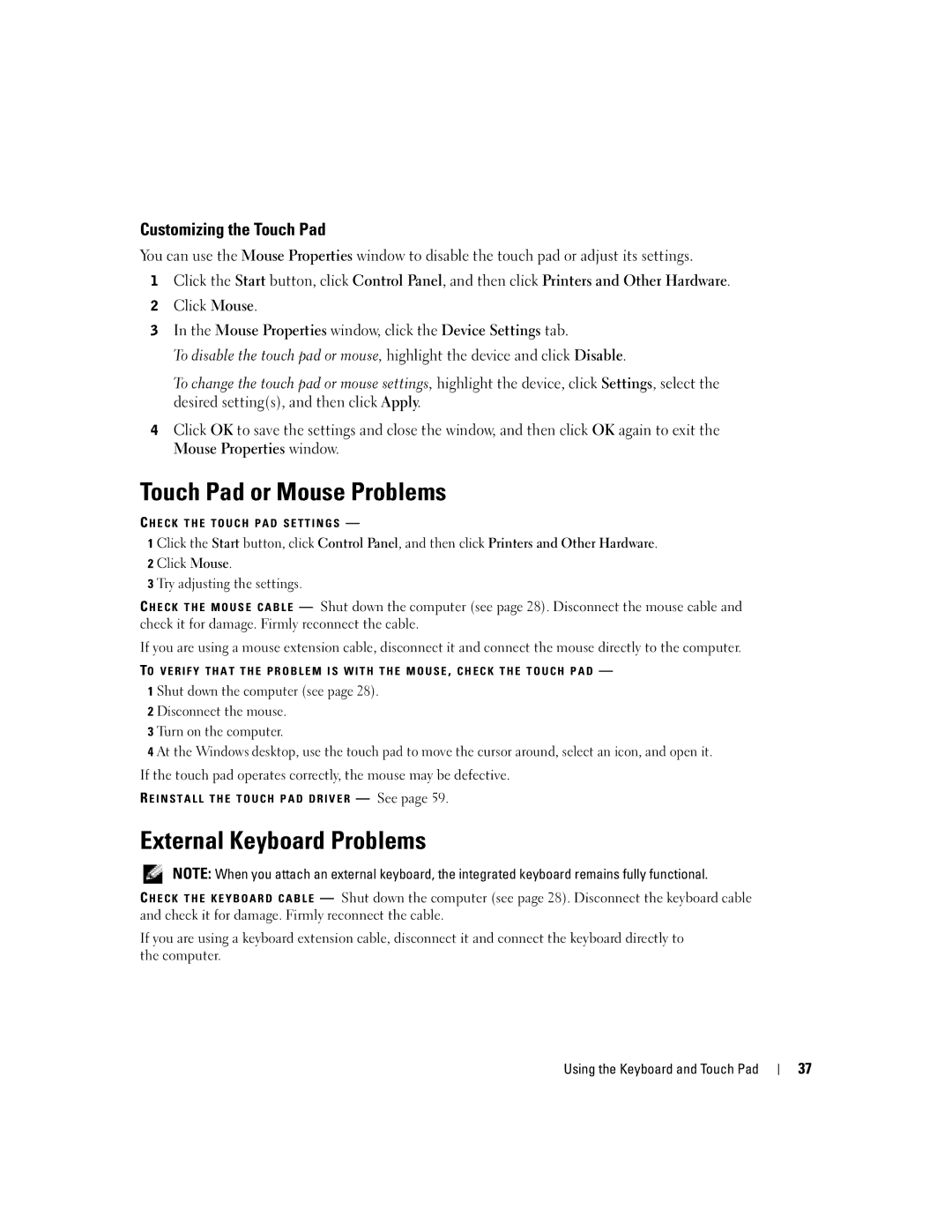
Customizing the Touch Pad
You can use the Mouse Properties window to disable the touch pad or adjust its settings.
1Click the Start button, click Control Panel, and then click Printers and Other Hardware.
2Click Mouse.
3In the Mouse Properties window, click the Device Settings tab.
To disable the touch pad or mouse, highlight the device and click Disable.
To change the touch pad or mouse settings, highlight the device, click Settings, select the desired setting(s), and then click Apply.
4Click OK to save the settings and close the window, and then click OK again to exit the
Mouse Properties window.
Touch Pad or Mouse Problems
C H E C K T H E T O U C H P A D S E T T I N G S —
1 Click the Start button, click Control Panel, and then click Printers and Other Hardware. 2 Click Mouse.
3 Try adjusting the settings.
C H E C K T H E M O U S E C A B L E — Shut down the computer (see page 28). Disconnect the mouse cable and check it for damage. Firmly reconnect the cable.
If you are using a mouse extension cable, disconnect it and connect the mouse directly to the computer.
TO V E R I F Y T H A T T H E P R O B L E M I S W I T H T H E M O U S E , C H E C K T H E T O U C H P A D —
1 Shut down the computer (see page 28).
2 Disconnect the mouse.
3 Turn on the computer.
4 At the Windows desktop, use the touch pad to move the cursor around, select an icon, and open it.
If the touch pad operates correctly, the mouse may be defective.
R E I N S T A L L T H E T O U C H P A D D R I V E R — See page 59.
External Keyboard Problems
NOTE: When you attach an external keyboard, the integrated keyboard remains fully functional.
C H E C K T H E K E Y B O A R D C A B L E — Shut down the computer (see page 28). Disconnect the keyboard cable and check it for damage. Firmly reconnect the cable.
If you are using a keyboard extension cable, disconnect it and connect the keyboard directly to the computer.
Using the Keyboard and Touch Pad
37
